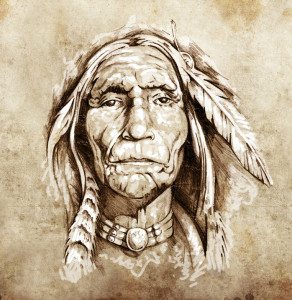Researching Your Native American Roots

Does your family lore include tales of Native American roots? Whether you’re part of a tribe and looking for more information or want to track down a distant ancestor who may have been a Native American, there’s good news. There are a number of different resources and strategies that can help you verify whether you had a native ancestor and learn more details about their life. While it’s one of the more complex areas to research, with a bit of planning and knowledge it’s often possible to gain some insights. Here are some tips on how to get started.
Collect lore and available documents
For many, the search for Native American ancestors begins with a family story or legend. It may be that the ancestor in question was far back in history and may be best connected with through documents. However, it’s also possible that he or she lived more recently. Start with what is known. Interview your relatives and collect as many details as possible. In particular, focus on gathering information that will help you determine tribal affiliations.
Tribal affiliations are particularly helpful for tracking down records, and learning more about the life your ancestor may have lived. It’s important to remember that Native American groups have had a complicated and sometimes volatile history since colonists arrived, up to and including the forced removal of entire nations. Your research may take you further afield than you expect. Starting with details, documents, and insights you already have can help greatly focus and simplify the research process.
Tribal research
Once you’ve determined what tribe your ancestor may have been affiliated with, it’s time to develop an understanding for the context of the tribe’s history. What geographic areas did they live in, and during what time period? Some groups were nomadic. Others migrated as a result of colonization or were relocated due to government actions. A tribe’s location in 1700 might be vastly different than in 1900. The more you learn about the history, the more effectively you’ll be able to find and vet records. Another helpful source may be groups that interacted with specific tribes– missionaries, trappers, settlers, and Indian agents, among others. Historical context can help you ferret out these more elusive sources.
Finding an individual ancestor
Your best chance for finding records of your specific ancestor will be determining where their lives may have intersected with government records or church records. Did he or she marry within a church? Attend a government school? Take part in some other element of broader society? A number of obstacles may prevent you from finding detailed records: native tribes didn’t keep written records for much of their history. Records have been lost or damaged. Some Native Americans didn’t identify themselves as Indian for any number of reasons, or belonged to tribes that were too small or remote to be dealt with by the federal government.
Further resources
There are a number of good resources that can help you learn more about specific tribes. Look for research centers at nearby universities and information maintained by modern tribal members. Access Genealogy’s Native American History and Genealogy can be a helpful starting point. Ancestry.com also has a large Native American Collection. The United States Indian Census Rolls and Dawes Commission Records may provide another resource.
Are you interested in learning more about your heritage? Contact Price & Associates today to arrange for a personalized consultation. Learn more about how our experienced team of professional genealogists can help you find information about your Native American roots.
